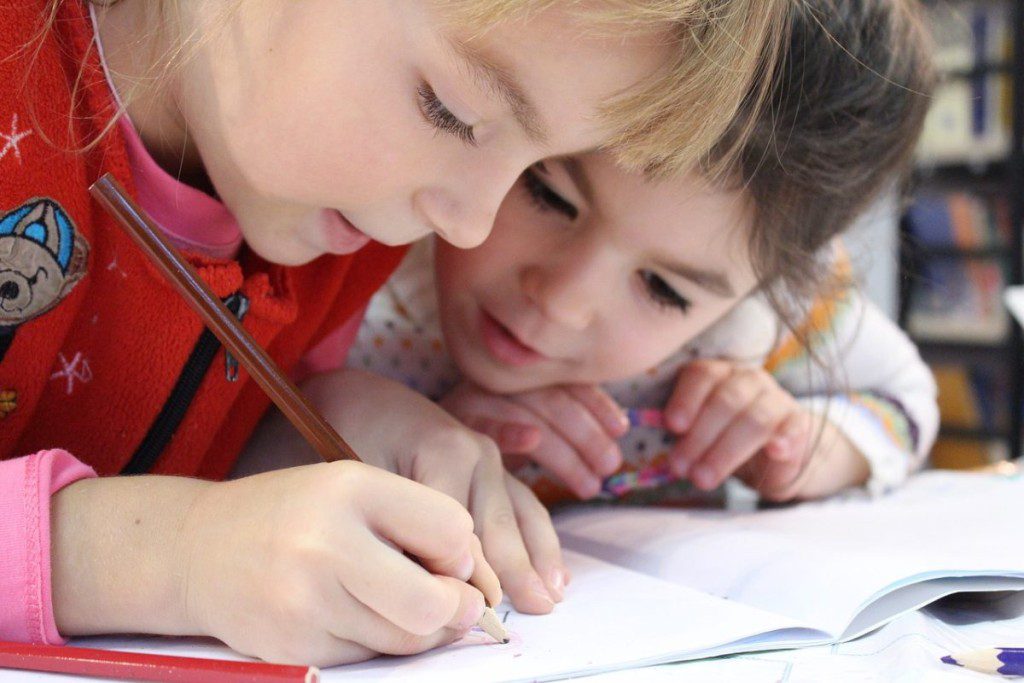In today’s fast-paced and ever-evolving world, parents and educators alike seek ways to equip children with not only academic prowess but also a genuine passion for knowledge. Cultivating a lifelong love for learning in children goes beyond the confines of textbooks and classrooms. It is about nurturing curiosity, resilience, and an innate enthusiasm for discovery. In this comprehensive guide, we will explore various strategies and approaches to empower you in fostering an enduring love for learning in the young minds you nurture. Let’s embark on a journey that shapes children into lifelong learners, embracing education not just as a destination but as a continuous, joyful expedition.
Create a Stimulating Environment
The journey to cultivating a love for learning begins with the environment we provide for our children. A stimulating environment is more than just a physical space; it encompasses a rich tapestry of experiences, resources, and opportunities for exploration. Surround your children with a diverse array of books that cater to various interests and reading levels. Engage them with interactive toys that spark creativity and problem-solving skills. Foster a curiosity-inducing ambiance that encourages questions and experimentation.
Diversity is key – expose your children to different cultures, perspectives, and ideas. Travel, whether near or far, can be an enriching experience that broadens their horizons. Museums, science centers, and cultural events offer tangible, hands-on learning experiences. Consider enrolling your children in a Montessori day care, where the environment is thoughtfully designed to nurture independent learning and exploration. By creating a stimulating environment, you lay the foundation for a love of learning that is both broad and deep, encouraging a child’s natural inclination to explore and discover.
Encourage Questions and Curiosity
Curiosity is the spark that ignites the flame of lifelong learning. Encouraging children to ask questions and explore their surroundings is paramount. Create a safe and open space where curiosity is not only welcomed but celebrated. When children feel confident in seeking answers, they develop a sense of agency over their learning journey.
As a parent or educator, take the time to engage in their questions. Explore topics together, conduct mini-experiments, or embark on research adventures. Show them that curiosity is not just about finding answers but also about the thrill of discovery. This approach not only satisfies their immediate curiosity but also instills a mindset that values asking questions as a fundamental part of the learning process.
Foster a Growth Mindset
Building a foundation for a love of learning involves instilling a growth mindset in children. The concept of a growth mindset, popularized by psychologist Carol Dweck, revolves around the belief that intelligence and abilities can be developed through effort, perseverance, and learning from mistakes.
Celebrate the process rather than just the outcomes. When children understand that their efforts contribute to their growth, they become more resilient in the face of challenges. Encourage them to view setbacks as opportunities to learn and grow, emphasizing that mistakes are a natural part of the learning journey. By fostering a growth mindset, you empower children to approach learning with enthusiasm, curiosity, and a willingness to embrace challenges.
Integrate Learning into Daily Life
Learning shouldn’t be confined to the classroom or designated study times. It should seamlessly integrate into daily life, making education a natural part of a child’s existence. Turn routine activities into learning opportunities – from measuring ingredients during cooking to exploring nature during a family walk. This integration helps children see the relevance of education in real-world scenarios.
Involve them in daily tasks that require problem-solving and critical thinking. Grocery shopping, budgeting, or planning a family event can become valuable lessons in practical skills and decision-making. By making learning a part of daily life, children understand that knowledge is not compartmentalized but is a dynamic force that shapes their understanding of the world around them.
Promote a Love for Reading
Reading is a gateway to diverse worlds, fostering imagination, empathy, and a deep understanding of various subjects. To cultivate a love for reading, make it a shared and enjoyable experience. Set aside dedicated time for reading together, allowing children to choose books based on their interests.
Explore different genres and formats, including fiction, non-fiction, graphic novels, and poetry. Trips to the library or bookstore can be exciting family outings, reinforcing the joy of discovering new ideas through literature. Encourage discussions about the stories, characters, and themes, creating a bond over shared literary experiences. By promoting a love for reading, you not only enhance language skills but also instill a lifelong appreciation for the power of storytelling and knowledge found in books.
Embrace Technology as a Learning Tool
In the digital age, technology can be a powerful ally in the quest for a love of learning. Introduce educational apps, interactive websites, and age-appropriate online resources that align with your child’s interests. While monitoring screen time is crucial, the responsible use of technology can open up new avenues for exploration.
Choose educational apps that focus on creativity, critical thinking, and problem-solving. Interactive websites can provide virtual experiences that complement traditional learning methods. Technology, when used as a tool for learning, can engage children in dynamic and interactive experiences, making the educational journey more enjoyable and relevant to their lives.
Celebrate Achievements, Big and Small
Recognition and celebration play pivotal roles in reinforcing a positive attitude toward learning. Acknowledge and celebrate both major milestones and minor victories. Create a supportive environment where children feel proud of their accomplishments, fostering a sense of achievement.
Whether it’s mastering a challenging math concept, completing a science project, or exhibiting resilience in the face of a tough assignment, every achievement contributes to a child’s sense of competence. Positive reinforcement creates an association between effort and reward, making learning a fulfilling and enjoyable pursuit. Celebrate the journey of learning, emphasizing that progress, no matter how small, is a cause for celebration.
Encourage Hobbies and Extracurricular Activities
Beyond the traditional academic sphere, extracurricular activities and hobbies offer children avenues to explore and express their passions. These activities contribute to a holistic and well-rounded education, showcasing the diverse facets of knowledge and skill. Encourage your children to pursue hobbies that align with their interests and talents.
Whether it’s learning a musical instrument, joining a sports team, participating in art classes, or engaging in scientific experiments, hobbies provide opportunities for self-expression, creativity, and social interaction. By supporting and actively participating in their extracurricular pursuits, you show children that learning extends beyond textbooks and classrooms. Hobbies become a gateway to discovering new interests, fostering a lifelong love for learning through hands-on, experiential activities.
In conclusion, the journey to nurture a lifelong love for learning in children is multifaceted and deeply rewarding. Each strategy we’ve discussed weaves into the fabric of a child’s daily life, reinforcing the idea that learning is continuous, joyful, and boundless. By fostering curiosity, a growth mindset, and a love for reading, integrating learning with play, technology, and daily tasks, and celebrating both the grand and the incremental achievements, we shape our children into confident, inquisitive, and resilient learners. Our role as parents and educators is to provide the tools and experiences that enable children to embark on their unique educational odysseys with enthusiasm and to treasure the intrinsic value of knowledge throughout their lives.






